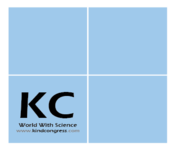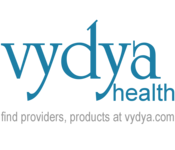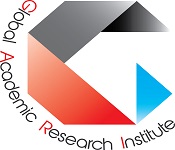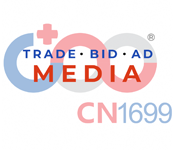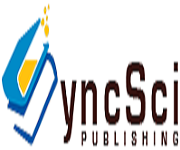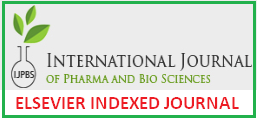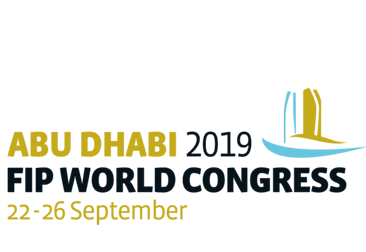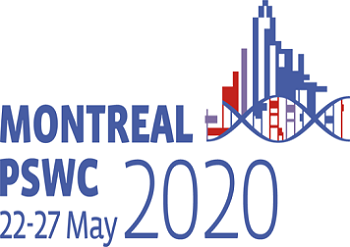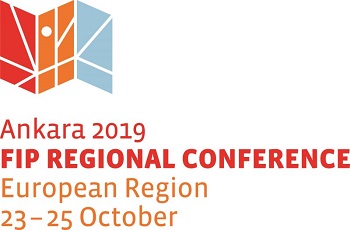Theme: Broaden the possibilities for Policy, Education, and Advocacy in the field of Pharmacoepidemiology and Clinical Research
Pharmacoepidemiology 2019
Join us for 12th International Conference on Pharmacoepidemiology and Clinical Research
Update your skills, enhance your knowledge base, and broaden your horizons- all in one place!
Date: November 18-19, 2019
Venue: Abu Dhabi, UAE
We heartily welcome all the participants throughout the globe to participate in the conference titled 12th International Conference on Pharmacoepidemiology and Clinical Research which is scheduled to commence on November 18-19, 2019 at Abu Dhabi, UAE. This event would be a great opportunity to gather knowledge as well as experience in the field of pharmacy.
Pharmacoepidemiology 2019 Conference is a multidisciplinary program with far-reaching cooperation with individuals from around the world concentrated on finding out about pharmacology, epidemiology, clinical research and its advances. This stage is your best chance to achieve the biggest get-together of members from Pharmacist and Clinical Pharmacist people group that is from the scholarly community, clinical scientists, medicinal gatherings, social orders, related affiliations and furthermore from drug specialist, government offices and therapeutic gadget businesses.
Pharmacoepidemiology 2019 describes the activities of the pharmacists done in order to elevate pharmaceutical care and medications for the promotion of health care and disease prevention. Pharmacoepidemiology has a promising history of upgrading the practices through new approaches and innovations. Clinical Pharmacy is more of a patient-centered discipline. The Clinical pharmacy field is not bound to any certain specific areas but has a reach towards other medical fields such as Cardiology, Nephrology, Oncology internal medicine and much more.
Motives to attend:
-
A wide track of exhibitors to showcase the new and emerging technologies.
-
Keynote presentation along with interactions to galvanize the scientific community.
-
Triumph of Awards, Certificates recognizes your commitment to your profession to encourage the nascent research.
-
Young Scientist/ Investigators Award geared towards best budding young research.
-
Links to the political marketing resources in order to expand your business and research network.
-
Platform to global investment community to connect with stakeholders in Pharma sector.
-
Workshop and symposiums to reach the largest assemblage of participants from the Pharma community.
Why to Attend???
12th International Conference on Pharmacoepidemiology and Clinical Research scheduled during November 18-19, 2019 in Abu Dhabi, UAE is organised aiming to bring together leading academic professors, scientists, researchers and students to exchange, share their experiences and research results on all aspects of Pharmacoepidemiology and Clinical research . It also provides a premier interdisciplinary pavement for Pharma, Regulatory, Drug Designing and clinical trial industries to represent their technological innovations and discuss the most recent approaches, trends, and concerns as well as practical challenges encountered and solutions adopted in the fields of Pharmacoepidemiology & Clinical research.
Pharmaceutical research provides a profitable business opportunity to several pharmaceutical and biotech companies as these technologies have wide application areas such as drug discovery and research followed by New drug delivery systems. Pharmacoepidemiology is the study of the utilization and effects of drugs in large numbers of people; it provides an estimate of the probability of beneficial effects of a drug in a population and the probability of adverse effects. It can be called a bridge science spanning both clinical pharmacology and epidemiology Part of the task of clinical pharmacology is to provide a risk benefit assessment by effects of drugs in patients:
1.Doing the studies needed to provide an estimate of the probability of beneficial effects on populations.
2.Or assessing the probability of adverse effects on populations.
Pharmacoepidemiology concentrates on clinical patient outcomes from therapeutics by using methods of clinical epidemiology and applying them to understanding the determinants of beneficial and adverse drug effects, effects of genetic variation on drug effect, duration-response relationships, clinical effects of drug-drug interactions, and the effects of medication non-adherence. Pharmacovigilance is a part of pharmacoepidemiology that involves continual monitoring, in a population, for unwanted effects and other safety concerns arising in drugs that are already on the market. Pharmacoepidemiology sometimes also involves the conduct and evaluation of programmatic efforts to improve medication use on a population basis.
Epidemiology is the study of the distribution and determinants of diseases and other health states in populations. Epidemiological studies can be divided into two main types:
1. Descriptive epidemiology describes disease and/or exposure and may consist of calculating rates, e.g., incidence and prevalence. Such descriptive studies do not at this time use health control groups and can only generate hypotheses,but not test them. Studies of drug use would generally fall under descriptive studies.
2. Analytic epidemiology includes two types of studies: observational studies, such as case-control and cohort studies, and experimental studies which include clinical trials or randomized clinical trials. The analytic studies compare an exposed group with a control group and usually designed as hypothesis testing by studies.
Pharmacoepidemiology and Clinical research Congress includes a wide range of Keynote presentations, Oral talks, Poster presentations, Symposia, Workshops, Exhibitions and extensive networking and B2B(Business to Business) interactions.
Mark your dates to meet the experts & join the critical discussions at Pharmacoepidemiology and Clinical Research Congress scheduled during November 18-19, 2019 in Abu Dhabi, UAE. Register now to unleash Advanced Clinical research and compliance in the arena of Pharmacoepidemiology.
Why Should Attend??
-
The arranging group assembles eminent speakers covering the most recent advances in the field, fusing differing qualities in each sense. We likewise incorporate talks on most recent methodologies for concentrating these biological inquiries.
-
The conference focuses on the wider aspect of the scientific contribution to showcase the new scientific and technical advances in comparison to the ancient theories. Your perspective and our visualization together will set a platform for the exchange of ideas towards contribution to advanced innovation.
-
We encourage multidisciplinary approach as well. Not only speaker presentations but also workshops, exhibition and networking opportunities are available. A Unique Opportunity for Advertisers and Sponsors at this International event.
Who Should Attend??
Directors,Senior Directors,Executive Directors and Vice Presidents and Senior Vice Presidents, Executive Vice Presidents and Heads/Leaders/Partners of:
-
CROs and CMOs
-
Clinical Research Sites
-
Pharma/Biotech and Medical Device industries
-
Hospitals, Associations
-
Medical Advisors
Medical Directors, Principal Investigators, Methodologists, and other clinical research professionals along with Academicians. University Faculties like Directors, Senior Professors and Assistant Professors and Associate Professor, Research Scholars, Adepts scientists who are related to clinical and medical research.
Clinical and Pharmaceutical and biotech industry professionals with responsibilities in:
-
Clinical Research & Development
-
Clinical Design/ Protocol Design/ Clinical Strategy
-
Global Clinical Operations
-
Clinical Outsourcing
-
Biostatistics/Data management
-
Patient Recruitment/Enrollment
-
Clinical Trial Management
-
Clinical Trial Supplies
-
Regulatory Affairs
-
PhD Scholars
-
Graduates and post graduates in industrial pharmacy
-
Scholars from Pharmaceutical backgrounds
-
Distributors and Suppliers of Drug Delivery Technologies
-
Graduates and post graduates in industrial pharmacy
-
Business Development Managers
-
Researchers, Professors, Students, and Faculty of Pharmaceutical Sciences from Universities and Medical Colleges
-
Researchers from Pharmaceutical Companies, Pharmacy Associations and Societies
-
Health professionals
-
Quality control specialist
-
Business development professionals, Consultants and Pharma service providers
-
Medical Devices Manufacturing Companies, CRO
-
Pharmaceutical legislators and regulators
-
Pharmacists
-
Data Management Companies.
Conference Highlights
-
Molecular Pharmacoepidemiology
-
Clinical Pharmacology and Therapeutics
-
Pharmacogenetics and pharmacogenomics
-
Neuropharmacology and Psychotropic Medicine
-
Cardiovascular Pharmacology
-
Nursing and Anesthesia Pharmacology
-
Immunopharmacology
-
Toxicology & Toxicogenomic studies
-
Cancer Pharmacoepidemiology and Genomics
-
Cholinergic drugs
-
Antibiotic Pharmacology
-
Rare Diseases & Drug Development
-
Personalized & Precision medicine
-
Drugs in Pregnancy & Lactation
-
Renal Pharmacoepidemiology & Adrenergic drugs
-
Oral Bisphosphonates & Osteoporosis
-
Pharmacoepidemiology in health-care and industry
-
Clinical and Industrial Pharmacy
-
Regulatory affairs, Drug Safety & Utilization Research
-
Patient safety and Adverse drug reactions
-
Innovations in Clinical Trials
-
Clinical Data Management
-
Pharmacokinetics and Pharmacodynamics
-
Advances in Pharmacological research
-
Nanotechnology in drug delivery
-
Drug discovery and Drug Screening
Look forward to welcoming you to the city of Gold, Abu Dhabi, UAE.
With Kind Regards
Pharmacoepidemiology 2019 Committee Members
Track-1: Molecular Pharmacoepidemiology
Molecular Pharmacoepidemiology is the investigation of the way in which sub-atomic biomarkers change the clinical impacts of medicines in common people. Similarly as the essential exploration of Pharmacoepidemiology is the study of disease transmission, connected to the substance territory of clinical pharmacology, the fundamental art of Molecular Pharmacoepidemiology is the study of disease transmission when all is said in done and sub-atomic the study of disease transmission particularly, likewise connected to the substance region of clinical pharmacology. Subsequently a considerable lot of strategies identified with the study of disease transmission are apply to sub-atomic Pharmacoepidemiology thinks about. Pharmacoepidemiology used to comprehend the intricate connection between medicine reaction and the immense number of potential sub-atomic and hereditary impacts on this reaction; an attention on cooperations among these elements and collaborations amongst qualities and condition.
Track-2: Clinical Pharmacology and Therapeutics
Clinical Pharmacology and Therapeutics is a medicinal diary which covers examine on the nature, activity, viability, and assessment of therapeutics. Clinical pharmacologists are clinicians with preparing in clinical pharmacology and therapeutics (CPT). Their center objective is to enhance tolerant care through the protected and powerful utilization of solutions. It is supported by the essential investigation of pharmacology, with included concentration the utilization of pharmacological standards and quantitative strategies in reality. Clinical pharmacology is a surge of biomedical science. It incorporates into tranquilize revelation, the investigation of the impacts of medications on their objectives in living frameworks and their clinical utilize, and also the investigation of natural capacity identified with these synthetic compounds. The primary goal is to advance the security of medicine, expand the medication impacts and limit the symptoms.
Track-3: Pharmacogenetics and Pharmacogenomics
Pharmacogenomics is the study of how genetic inheritance of an individual’s affects the body’s response to drugs. The term Pharmacology and genomics is comes from pharmaceuticals and genetics.it holds the promise that drugs might one day be tailor-made for individuals and adapted to each person’s own genetic makeup. Pharmacogenetics is referred to study the inherited genetic differences in drug metabolic pathways which can affect individual responses to drugs, and the therapeutic effect as well as adverse effects. The term pharmacogenomics is often used interchangeably with the term pharmacogenetics which also investigates the role of acquired and inherited genetic differences in relation to drug response and drug behavior through a systematic examination of genes, gene products, and inter- and intra-individual variation in gene expression and function.
Track-4: Neuropharmacology and Psychotropic Medicine
Psychopharmacology is the investigation of the impacts of solution on the brain science, watching changed practices and how sub-atomic occasions show in a quantifiable social shape. Neuropharmacology is the investigation of the impacts of pharmaceutical on focal and the fringe sensory system execution. Standards identified with the psychopharmacology. Neurogenesis and repair manage different sorts on the signs for prescriptions recommended to address the mental and social issues, that are related with, including antipsychotic, and anticonvulsant solutions, obtained mind damage and Neurocognitive impacts related with the helpful medications likewise incorporates into state of mind stabilizers and medicines endorsed for scatters of consideration.
Track-5: Cardiovascular Pharmacology
Basically Cardiac drugs used in Hypertension, Angina pectoris and MI, Shock ,Arrhythmias and CHF. Antihypertensive drugs employed to control hypertension they can be classified as Diuretics, Beta-blockers, Alpha adrenergic blockers, calcium channel blockers, Angiotensin-converting enzyme inhibitors, Angiotensin II receptor blockers and peripheral vasodilators. Knowledge of polypharmacy and drug interactions is crucial, and the pharmacokinetic and pharmacodynamic challenges associated with advanced patient age, comorbidity, and sometimes frailty must be addressed and overcome. The environmental and genetic determinants of variability in response to treatment are increasingly well understood, and new biomarkers and pharmacokinetics techniques provide the foundations of the emerging discipline of personalized medicine. Long-term preventive medication raises issues concerning safety, adherence, and cost to healthcare providers.
Track-6: Nursing and Anesthesia Pharmacology
Nursing pharmacology causes medical attendants to see how tranquilizes function in the body. They empower them to comprehend the effects, envision and perceive the potential symptoms or toxicities of the medications controlled by the patients. In sedate treatment now a days, attendants, together with doctors and drug specialists, take part in an arrangement of promoting rules intended to advance useful impacts and limit hurt. Anesthesia pharmacology can be alluded to the pharmacological method of activity analgesics operators after their organization into the body. The training likewise manages the unfavorable activities, safety measures of sedatives and their communication with different soporifics.
Track-7: Immunopharmacology
An insusceptible framework is an arrangement of natural structures and procedures with in a life form that ensures against malady by distinguishing and slaughtering pathogens and tumor cells. Furthermore, identifies a wide assortment of operators, from infections to parasitic worms. What's more, needs to recognize them from the creature's own solid cells and tissues. Location is confused as pathogens can advance quickly, Delivering adjustments that keep away from the safe framework. The invulnerable framework shields life forms from contamination with layered safeguards of expanding specificity. In the event that a pathogen ruptures these obstructions, the natural invulnerable framework gives a quick, non-particular reaction. Two noteworthy segments of invulnerable framework are innative and versatile.
Track-8: Toxicology & Toxicogenomic Studies
Toxicology is stretch out finished in order to cover halfway with science, pharmacology, medication. The investigation of the unfriendly impacts of concoction substances on living creature and routine with regards to diagnosing and treating exposures to tixins and toxicants is by inclusion of toxicology. The connection amongst dosage and its consequences for the uncovered living beings is of high importance in toxicology. Concoction lethality incorporate the dose ,species, age and condition are the impacting factors. Toxicogenomics unites toxicology with genomics or other high-throughput sub-nuclear profiling advancements, for instance, transcriptomics, proteomics and metabolomics. Toxicogenomics endeavors to clear up the nuclear instruments progressed in the announcement of lethality, and to decide sub-nuclear explanation cases, for instance, sub-nuclear biomarkers, that foresee peril or the innate lack of protection to it.
Track-9: Cancer Pharmacoepidemiology and Genomics
Pharmacogenomics is the study of how genetic inheritance of an individuals affects the body’s response to drugs. The term Pharmacology and genomics is comes from pharmaceuticals and genetics.it holds the promise that drugs might one day be tailor-made for individuals and adapted to each person’s own genetic makeup. Pharmacogenomics used to identify disease susceptibility genes which represent potential new drug targets, and also to identify gene sequence variations that can cause adverse drug reaction. Pharmacogenomics centers around seeing how fluctuation in qualities encoding for drug metabolizing enzymes using chemicals, tranquilize receptors, sedate transporters, and proteins associated with pathway flagging impacts singular contrasts in antagonistic impacts and treatment adequacy and effectiveness.
Track-10: Cholinergic Drugs
Cholinergic medications as a rule demonstration in one of two different ways. Some specifically copy the impact of acetylcholine, while at the same time others square the effects of acetylcholinesterase. Acetylcholinesterase is a catalyst that obliterates normally happening acetylcholine. By blocking the compound, the normally happening acetylcholine has a more drawn out activity.
Track-11: Antibiotic Pharmacology
Anti-infection agents are drugs that are utilized as a part of the aversion of bacterial diseases. Anti-microbials are common substances delivered by miniaturized scale living beings instead of engineered anti-infection agents, which are either characteristic substances falsely altered or absolutely human made individually. Anti-infection agents shape some portion of a more extensive scope of antimicrobial operators, a gathering which additionally incorporates antifungals, antiprotozoals and disinfectants. This gathering is otherwise called chemotherapeutic specialists.
Track-12: Rare Diseases & Drug Development
An uncommon ailment is any sickness that influences a little level of the populace. In a few sections of the world, a vagrant sickness is an uncommon illness whose irregularity implies there is an absence of a market sufficiently vast to pick up help and assets for finding medicines for it. Vagrant medications are ones so made or sold. Most uncommon infections are hereditary and in this manner are available all through the individual's whole life, regardless of whether indications don't quickly show up. Medication improvement is the way toward conveying another pharmaceutical medication to the market once a lead compound has been recognized through the procedure of medication disclosure. It incorporates pre-clinical research on microorganisms and creatures, petitioning for administrative status, for example, through the Assembled States Nourishment and Medication Organization for an investigational new medication to start clinical preliminaries on people, and may incorporate the progression of getting administrative endorsement with another medication application to advertise the medication.
Track-13: Personalised & Precision Medicine
Personalized medicine is an older term which is also known as precision medicine. There was concern that the word "personalized" could be misinterpreted to imply that treatments and preventions are being developed uniquely for each individual; in exactness medication, the attention is on distinguishing which methodologies will be viable for which patients in light of hereditary, natural, and way of life factors. The Committee in this manner favored the expression "precision medicine " to "personalized medicine." Be that as it may, a few people still utilize the two terms conversely.
Track-14: Drugs in Pregnancy & Lactation
Medication use amid pregnancy and lactation requires unique thought in light of the fact that both the mother and the child are influenced. Numerous pregnant or lactating ladies take drugs for unending issue or ongoing utilization of liquor and tobacco. Pregnant ladies represent an arrangement of restorative issues that must be considered before endorsing drug. She can display adjusted pharmacokinetic and pharmacodynamics reaction to various medications. Medications are utilized as a part of over portion everything being equal and pervasiveness of utilization is expanding. All medications are managed to pregnant ladies can possibly cross the placenta and impacts on embryo.
Track-15: Renal Pharmacoepidemiology & Adrenergic Drugs
Chronic kidney infection (CKD) also called as chronic renal illness is a state in which the kidney fails to work after some time. Chronic kidney disease has no effect at the early states yet as the time continues the kidneys can never again have the capacity to expel enough squanders and over abundance fluids from the body. Diabetes and hypertension are the two most normal causes that record in the greater part of the cases. An adrenergic agonist is a medication that empowers a reaction from the adrenergic receptors. The five fundamental classifications of adrenergic receptors are α1, α2, β1, β2, and β3, despite the fact that there are more subtypes, and agonists change in specificity between these receptors, and might be characterized separately. In any case, there are additionally different systems of adrenergic agonism. Epinephrine and norepinephrine are endogenous and wide range. More specific agonists are more helpful in pharmacology. An adrenergic specialist is a medication, or other substance, which has impacts like, or the same as adrenaline. Hence, it is a kind of sympathomimetic operator. On the other hand, it might allude to something which is vulnerable to epinephrine, or comparative substances, such as an organic receptor.
Track-16: Oral Bisphosphonates & Osteoporosis
Oral Bisphosphonates are a class of medications that keep the loss of bone thickness, used to treat osteoporosis and similar illnesses. They are the most generally recommended drugs used to treat osteoporosis. They are called as diphosphonates because that they have two phosphonate (PO(OH)2) groups. They are also called as bisphosphonates .They decrease the danger of crack in post-menopausal ladies with osteoporosis. Bone tissue experiences consistent rebuilding and is kept in adjust by osteoblasts making bone and osteoclasts destroying bone. Bisphosphonates inhibit the processing of bone by urging osteoclasts to experience apoptosis, or cell passing(cell death), in this way slowing bone loss. Osteoporosis is where increased bone weakness increases the danger of a broken bone. It is the most well-known explanation behind a broken bone among the elderly. Bones that normally break incorporate the vertebrae in the spine, the bones of the hip, and the lower arm. Until the point that a broken bone happens there are commonly no symptoms. Bones may debilitate to such an extent, to the point that a break may happen with minor pressure.
Track-17: Pharmacoepidemiology in Health-Care and Industry
Pharmacoepidemiology is a wide science involving uses and effects of drugs in larger domains of population. Pharmacoepidemiology is a bridging science spanning both pharmacology and epidemiology. of making obvious obscure, the science of long division and provide a summery equation. Prevailing of population conditions responsible for the health care, such as non-communible diseases and fertility in certain conditions and grows in minor and major subgroups. And epidemiologists measures specific incidence and validity are presented. The pharmaceutical industry has a vital interest in, and plays a major role regarding, the issues of safety of the medicines it produces. Not only does industry have the basic and broadest expertise in drugs, it also is in an ideal position to receive and evaluate important information.
Track-18: Clinical and Industrial Pharmacy
Clinical pharmacy is the branch of pharmacy in which it give understanding consideration that upgrades the utilization of prescription and advances, illness counteractive action(disease prevention), and wellbeing . Clinical drug specialists watch over patients in all human services settings however the clinical drug store development at first started inside healing facilities and centers. Clinical drug specialists frequently work as a team with healthcare professionals, and other physicians. Industrial pharmacy is a discipline which includes manufacturing , drug development, marketing and distribution of drug products including quality assurance of these activities.
Track-19: Regulatory Affairs, Drug Safety & Utilization Research
Regulatory Affairs is involved in all the stages of development of a new medicine and its post-marketing activities with medicinal products authorities. This department heart of pharmaceutical industry. Internally it is a cluster of drug development, drug manufacturing, drug marketing and clinical research. Outward it is an interface between the company and regulatory authorities. Regulatory affairs are independent for specific country and their guidelines. Drug safety and Utilization Research promoting, dissemination, medicine, and utilization of medications in a general public, with uncommon action on the subsequent therapeutic, social and monetary outcomes. From that point then, various different terms have come into utilization and it is important to comprehend the interrelationships of the distinctive areas. The principal aim of drug utilization research is to facilitate the rational use of drugs in populations. For the individual patient, the rational use of a drug implies the prescription of a well documented drug at an optimal dose, together with the correct information, at an affordable price.
Track-20: Patient Safety and Adverse Drug Reactions
These patient safety incidents can be divided into two categories, they are errors of commission or errors of omission. The one errors of commission include, wrong medicine or wrong dose. The latter include a failure to monitor doses, such as international normalized ratio for anticoagulant therapy. Adverse drug reaction is a side effect occurring with a drug where as a positive causal relationship between the event and the drug is thought, to exist. An adverse drug reaction (ADR) is an injury caused by taking a medication. ADRs may occur following by a single dose or prolonged administration of a drug or result from the combination of two or more drugs. The meaning of this expression is entirely differs from the meaning of "side effect", as this last expression might also imply to that effects can be beneficial. The study of an ADRs is the concern of the field known as pharmacovigilance.
Track-21: Innovations in Clinical Trials
Clinical trials basically involves in three or four steps:
· Phase I trials: usually in healthy volunteers, determine safety and dosing.
· Phase II trials: are used to get an initial reading of efficacy and further explore safety in small numbers of patients having the disease targeted by the NCE.
· Phase III trials: are large, pivotal trials to determine safety and efficacy in sufficiently large numbers of patients with the targeted disease.
· Phase IV: trials are post-approval trials that are sometimes a condition attached by the FDA, also known as post-market surveillance studies.
The procedure of defining characteristics of the drug does not stop once an NCE begins human clinical trials. In addition to the tests required to move a novel drug into the clinic for the first time, that manufactures must ensure that any long-term or chronic toxicities are well-defined, including effects on systems not previously monitored. They must also test the compound for its potential to cause cancer .
Track-22: Clinical Data Management
Clinical data management is a support for drug development and a perquisite needs to get drugs to market the earlier so that the patients can access to drugs. The team of global clinical data management experts is committed to upholding a standardized, process-driven approach from Phase I through to post-marketing trials. Centralizing all safety data, clinical data, analysis and reporting with one provider is advantageous. Pharmacovigilance provides broad analysis of adverse events arising from the use of Pharmaceutical products such as, Vaccines, Non-Drug Therapy. The drug safety database permits the risk- benefit analysis of medicinal and medical products taking into account, new and emerging information. Pharmacovigilance is a compliance driven activity, whereas regulatory compliance determines company’s risk assessment scores.
Track-23: Pharmacokinetics and Pharmacodynamics
Pharmacokinetics is likewise truncated as PK, it is a major branch of pharmacology committed to deciding the substances destiny of regulated to a living organism. The substances of intrigue incorporate any chemical xenobiotic such as, pharmaceutical drugs ,food additives , and so on. It endeavors to dissect the chemical metabolism and to find the destiny of a substance from the minute that it is managed up to the time when it is totally wiped out from the body. Pharmacokinetics is the investigation of how a life form influences a medication, while pharmacodynamics (PD) is the investigation of how the medication influences the life form.
Track-24: Advances in Pharmacological Research
Analytical methods, it incorporates distinctive propelled strategies in pharmaceutical industry. Chromatographic techniques are ordinarily utilized for the quantitative and qualitative investigation of raw materials; tranquilize items, and mixes in organic examples in pharmaceutical industry. Checking or investigation of parts which may incorporate chiral or achiral drugs. And the process contaminations, leftover solvents, excipients, like as, additives, extractable and leachable from compartment and conclusion or assembling process, pesticide in medicate item from metabolites.
Track-25: Nanotechnology in Drug Delivery
Nanoparticles are colloidal drug delivery systems. Nanoparticle ranges are 10-1000 in diameter. Nanoparticles are composed of semi synthetic polymers carrying drugs (antigens). Drugs are entrapped in polymer matrix particulates may be bound to particle surface by chemical form. Basically they are involves in selective localization of preselected target in therapeutic concentration, provides restriction to nontarget cells.
Track-26: Drug Discovery and Drug Screening
Drug discovery is the operation by which medications of new candidate are discovered. Drugs were identified through discovering the active constituent from conventional treatment. chemical libraries of synthetic molecules, natural products were conseal in intact cells or whole organisms to locate substances that have an advantageous therapeutic effect in a process known as classical pharmacology.
The global clinical data analytics market is projected to reach US$13.830 billion by 2023 increasing from US$3.114 billion in 2017 and is expected to growth at a CAGR of 28.21% during the forecast period of 2018-2023.Shifting trends towards digital payment models and growing popularity of Electronic Medical Records (EMRs) are driving the growth of this market in many regions across the global. Rising demand for improved and cost-effective healthcare is increasing the demand for clinical data analytics. As the security of digital platforms and channels continues to increase owing to huge amounts being poured into security by major market players, and significant investments continue to stream into the healthcare industry, the adoption of clinical data analytics will continue to gain momentum over the projected period, thus augmenting the growth of this market.
Clinical research is one of the core technologies to accelerate the transformation of the entire country-Malaysia into a knowledge based economy and an industrialized nation by year 2021.The Malaysia healthcare subsector is in a state of relative infancy occupied with many small and medium-sized companies offering products and services in contract based research, tissue banking, naturally derived products, in-vitro diagnostic and orthopedic devices. This sector is estimated to be up to worth US$ 1.38 million, and is expected to grow at a CAGR of 10.6%.
Globalization of clinical trial has led to increase in investment in new product development in emerging countries thereby, having a positive impact on overall market. The availability of the vast array of services from drug discovery to post-marketing surveillance has further simplified the life for mid-size and small-scale pharmaceutical and biotechnological organizations by providing them the option to outsource what they think is beyond their core expertise. For instance, Pfizer currently has three CROs working with it to enhance its product portfolio and drive innovation. According to the partnership agreement with ICON in 2011, Pfizer would only preserve the scientific ownership for the trials and studies conducted by ICON, hence allowing the company to focus and further develop its capabilities in clinical trial designing.

GLOBAL CLINICAL RESEARCH MARKET GROWTH IN BILLIONS
The increasing disease burden is propelling the pharmaceutical and biotechnology industry to bring up new chemical entities into the market at a higher rate. Most companies are outsourcing the clinical trials of their newly developed drugs to various contract research organizations as this could save them the hassles of regulatory issues and patient recruitment burden from the research and development phase. Pharmacoepidemiology and Clinical research the drug to be tested for safety by different ethnic population. Due to the higher medical needs and increasing disease prevalence, developing countries are becoming a hub for clinical trial execution. Since 2006, there has been an increased number of trials registered worldwide and it is estimated to increase further in the coming years, which would contribute to the market growth.
The Assembled States and Canada have the most noteworthy piece of the pie in the clinical research and clinical preliminaries advertise, trailed by Europe where Germany drives the market took after by Poland and Western Europe. Asia is one of the quickest developing markets. India, China, Singapore and South Korea are the significant players engaged with this market. The Asia-Pacific locale has turned into an appealing goal for organizations offering CTMS programming. The high development in this provincial section can be ascribed to various components, for example, rising number of clinical preliminaries, nearness of a substantial number of CROs, government activities, increment in outsourcing of clinical preliminaries, accessibility of extensive and differing tolerant populace, nearness of less stringent administrative rules when contrasted with created countries, and cost favorable circumstances offered by different nations.
The expanding illness load is impelling the pharmaceutical and biotechnology industry to raise new concoction substances into the market at a higher rate. Most organizations are outsourcing the clinical preliminaries of their recently created medications to different contract investigate associations as this could spare them the issues of administrative issues and patient enrollment trouble from the innovative work stage. Pharmacoepidemiology and Clinical research the medication to be tried for wellbeing by various ethnic populaces. Because of the higher restorative needs and expanding malady pervasiveness, creating nations are turning into a center for clinical preliminary execution. Since 2006, there has been an expanded number of preliminaries enrolled worldwide and it is evaluated to increment advance in the coming years, which would add to the market development.
Pharmaceutical Societies and Associations across the world:
- International Pharmaceutical Federation (FIP)
- International Pharmaceutical Students' Federation (IPSF)
- European Association of Employed Community Pharmacists in Europe (EPhEU)
- Pharmaceutical Group of the European Union (PGEU)
- Australian College of Pharmacy
- Pharmaceutical Society of Australia
- The Pharmacy Guild of Australia
- The Society of Hospital Pharmacists of Australia
- Canadian Pharmacists Association
- Canadian Society of Hospital Pharmacists
- Ontario Pharmacists Association
- Chinese Pharmaceutical Association
- Danish Association of Pharmaconomists
- Pharmaceutical Society of Ireland
- The Pharmaceutical Association of Israel
- Kuwait Pharmaceutical Association
- Pharmaceutical Association of Mauritius
- Pharmaceutical Society Of New Zealand
- Norwegian Pharmacy Association
- Pakistan Pharmacists Association
- National Pharmacy Association
- Pharmaceutical Society of Northern Ireland
- Royal Pharmaceutical Society (RPS)
- American Association of Colleges of Pharmacy (AACP)
- American Pharmacists Association (APhA)
- American Society for Pharmacy Law
- American Society of Consultant Pharmacists (ASCP)
- American Society of Health-System Pharmacists (ASHP)
- Professional Compounding Centers of America
- American College of Clinical Pharmacy (ACCP)
- College of Psychiatric and Neurologic Pharmacists (CPNP)
Related Societies:
EUROPE:
The Federation of European Pharmacological Societies; European Association for Clinical Pharmacology and Therapeutics; European Behavioral Pharmacology Society; European Society of Biochemical Pharmacology; European College of Neuropsychopharmacology; European Federation for Pharmaceutical Sciences, International Society of Pharmacovigilance; The Drug Safety Research Unit; Drug Information Association: Society of Toxicology; Society of Environmental Toxicology and Chemistry. European Industrial Pharmacists Group; European Pharmaceutical Students Association; Pharmaceutical Group of the European Union; European Association of Hospital Pharmacists; European Confederation of Pharmaceutical Entrepreneurs; European Generic Medicines Association; European Federation of Pharmaceutical Industries and Associations ; Pharmaceutical Society of New Zealand; Major Pharmacists Associations in Australia; Australian Friendly Societies Pharmacies Association; Australian Health Practitioner Regulatory Agency; Australian Pharmacy Council; Professional Pharmacists Australia; Pharmacy Division of Professionals Australia; The Pharmacy Guild of Australia; The Society of Hospital Pharmacists of Australia; European Association of Employed Community Pharmacists in Europe; European Pharmaceutical Union
MIDDLE EAST:
Scientific Centre of Drug and Medical Technology Expertise; National Health Regulatory Authority; Ministry of Health - Pharmaceutical Services; Egyptian Drug Authority; Georgia Drugs and Narcotics Agency; Jordan Food and Drug Administration; Kuwait Drug and Food Control Administration; Pharmacy and Drug Control; Japan Society of Drug Delivery System; Oral Drug Delivery Focus Group; Inhalation Drug Delivery Association-IDDA; The Pharmaceutical and Novel Drug Delivery Healthcare Sciences Society (PHSS); Drug Information Association; Pharmaceutical Group of European Union (PGEU); Applied Pharmaceutical Nanotechnology Society (APN); Controlled Release Society (CRS); Congress on Innovation in Drug Delivery (APGI); International Society for Aerosols in Medicine (ISAM)
ASIA:
Chinese Pharmaceutical Association; Indian Pharmacist Association; Pakistan Pharmacists Association; Japan Pharmaceutical Manufacturers Association; Association of Pharmacy Professionals; Pharmaceutical Association of Mauritius; The Pharmaceutical Association of Israel; Kuwait Pharmaceutical Association; Drug Office - Department of Health; Pharmaceuticals and Medical Devices Agency; Ministry of Food and Drug Safety; Directorate General of Drug Administration; Central Drugs Standard Control Organization; National Agency of Drug and Food Control; National Pharmaceutical Control Bureau
USA:
New York Health Products Council; Pharmaceutical Research and Manufacturers of America; American Association of Colleges of Pharmacy; American Society of Health-System Pharmacista; Professional Compounding Centers of America; Canadian Pharmacists Association; American Society of Health-System Pharmacists; Society for Clinical Trials; Association of Clinical Research; The Society of Clinical Research Associates; Clinical Research Society; American Association of Pharmaceutical Scientists; Association of British Pharmaceutical Industry ; International Society for Pharmacoepidemiology; Center for Drug Safety and Effectiveness; Center for Public Health and Human Rights; Center for Health Services and Outcomes Research; International Pharmaceutical Federation; International Society of Pharmacovigilance
Conference Highlights
- Pharmacokinetics and Pharmacodynamics
- Molecular Pharmacoepidemiology
- Clinical Pharmacology and Therapeutics
- Pharmacogenetics and Pharmacogenomics
- Neuropharmacology and Psychotropic Medicine
- Cardiovascular Pharmacology
- Nursing and Anesthesia Pharmacology
- Immunopharmacology
- Toxicology & Toxicogenomic Studies
- Cancer Pharmacoepidemiology and Genomics
- Cholinergic Drugs
- Antibiotic Pharmacology
- Rare Diseases & Drug Development
- Personalized & Precision Medicine
- Drugs In Pregnancy & Lactation
- Renal Pharmacoepidemiology & Adrenergic Drugs
- Oral Bisphosphonates & Osteoporosis
- Pharmacoepidemiology in Health-Care and Industry
- Clinical and Industrial Pharmacy
- Regulatory Affairs, Drug Safety & Utilization Research
- Patient Safety and Adverse Drug Reactions
- Innovations in Clinical Trials
- Clinical Data Management
- Advances in Pharmacological Research
- Nano-Technology in Drug Delivery
- Drug Discovery and Drug Screening
- Clinical Pathology
To share your views and research, please click here to register for the Conference.
To Collaborate Scientific Professionals around the World
| Conference Date | November 18-19, 2019 | ||
| Sponsors & Exhibitors |
|
||
| Speaker Opportunity Closed | |||
| Poster Opportunity Closed | Click Here to View | ||
Useful Links
Special Issues
All accepted abstracts will be published in respective Our International Journals.
- Advances in Pharmacoepidemiology and Drug Safety
- Journal of Clinical Trials
- Journal of Clinical Research & Bioethics
Abstracts will be provided with Digital Object Identifier by




